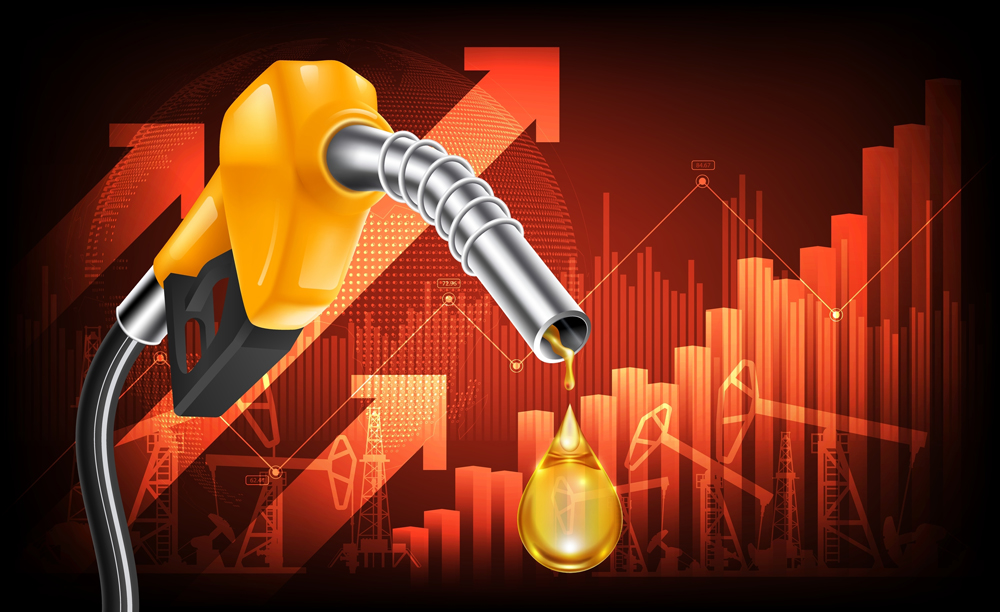Digital Zeitgeist – The Crux of Rising Fuel Prices: Global Factors, Geopolitical Moves, and the OPEC+ Cartel
Fuel, as the backbone of modern economies, remains an essential commodity for daily life, transport, and industry. Over recent years, fuel prices have taken the public on a volatile journey, witnessing sharp spikes and equally rapid falls. At the centre of this oscillation is the tug-of-war between geopolitics, market dynamics, and a powerful alliance known as the OPEC+ cartel.
A Turbulent Historical Review
At the outbreak of the COVID-19 pandemic, the world observed an unprecedented drop in fuel demand. The stringent lockdowns, coupled with diminished transport and industrial activities, pushed pump prices to as low as £1.07 for petrol and £1.11 for diesel. But as restrictions eased, the numbers started to climb again, catapulted further by geopolitical events such as Russia’s intervention in Ukraine, seeing prices soar closer to the £2 mark. The past month has been particularly striking, with August bearing witness to another 7p and 8p rise for unleaded and diesel, respectively. This inflationary pressure paints a grim picture for Chancellor Rishi Sunak’s target of halving inflation this year.
The Role of Oil Costs
The primary catalyst behind these surges remains the cost of oil. To understand the complexities of fuel price determinants, it’s crucial to acknowledge the workings of global oil prices. Fundamentally driven by supply-demand dynamics, oil prices also factor in speculative trading. However, a significant distinction of the oil market is the powerful influence of the OPEC+ cartel, overseeing a staggering 80% of the world’s crude reserves and contributing to over 40% of global output.
This Saudi-led consortium, inclusive of heavyweights like Russia, operates on a shared goal: maintaining price stability and profitability. This modus operandi is often juxtaposed against the pricing behaviours of Western economies which vehemently oppose price manipulation. Yet, the clout of OPEC+ remains unchallenged. Their recent decisions to curtail oil production, despite a backdrop of rising oil prices, showcase their power.
Brent crude, a global benchmark for oil prices, exemplifies the ongoing tension. As of the start of this week, November’s delivery contracts were poised at $88 a barrel. This is a significant rise from last month’s range of $84 to $86. Predictions are rife that this upward trend may persist, especially with looming extensions of production cuts by the OPEC+.
Geo-political and Financial Implications
While OPEC+’s decisions are rooted in self-interest, their consequences reverberate globally. The current restrictions reflect concerns about a slowing global economy. As nations grapple with inflation, interest rate hikes become inevitable. For countries like China, grappling with its own economic crisis, the implications are even graver. A slowed Chinese economy could shift the equilibrium, triggering a supply-demand imbalance reminiscent of the pandemic era.
However, silver linings do emerge. With the end of the US peak holiday driving season and initial indications of OPEC+ increasing its output in August, a moderation in oil prices might be on the horizon.
Regulatory Repercussions
Regulation has been a beacon of hope, as evident from recent interventions by the Competition and Markets Authority (CMA). This regulatory scrutiny has led supermarkets to re-adjust their fuel margins to pre-pandemic norms. The implications of the CMA’s oversight can be further witnessed in the sentiments echoed by the RAC’s fuel spokesman, Simon Williams. The hope remains that this trend towards fairness in pricing will be sustained, even when wholesale costs dip.
Conclusion: Unravelling the Global Web
While national regulatory bodies can impose checks and foster competition, the overarching power wielded by the OPEC+ cartel remains undeniable. Their decisions have ramifications not just for the UK but for the global financial system at large. As nations continue their quest for energy independence and diversification, it’s imperative for global alliances and entities to pursue transparency, stability, and fairness. Until then, the unregulated might of the OPEC+ cartel will continue to cast its long shadow on fuel prices worldwide.
Disclaimer: The views and opinions expressed in this article are those of the author and do not necessarily reflect the official policy or position of GPM-Invest or any other organisations mentioned. The information provided is based on contemporary sourced digital content and does not constitute financial or investment advice. Readers are encouraged to conduct further research and analysis before making any investment decisions.

